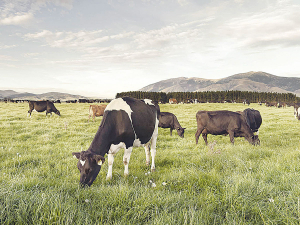OPINION: By the time Auckland mayor Wayne Brown made the symbolic act of declaring a ‘state of emergency’ during recent flooding, the actual emergency response – everyone from council and emergency services to citizens helping each other – had been underway for hours. Nobody was sitting on their hands waiting for a sign from on high.
Similarly, NZ’s farming industry, facing a raft of challenges, is not sitting back waiting for others to determine their fate. The pages of this issue of Rural News are full of examples of the myriad ways that ‘NZ Ag’ – everyone from research bodies, to farmers are helping themselves and others – is adapting.
The resilience of the entire industry is on display here. In the face of headwinds from markets, the climate, and artificial restraints (government red tape).
Stories in this issue outline how research is underway to find low-cost ways to reduce runoff of phosphorus and sediment; and to more accurately forecast the impact of climate change on pasture growth, so that modelling more accurately predicts the impact on productivity.
The Plant Breeding and Research Association is improving farmer access to information about pasture genetics – a key tool for farm adaptation.
The machinery section shows how manufacturers are busy innovating to reduce on-farm emissions and boost efficiency.
PI is also busy, via its chief scientist Dr John Roche, building a modern version of the farm advisory service, called On Farm Support.
Other articles explain some of the ways farmers and growers are responding to higher interest rates and input costs, or to labour shortages. Nobody is sitting around waiting for help from Wellington or anywhere else; the industry is adapting and finding a way through.
Strong demand for sites at the coming round of regional field days – Northland (March 2-4), Central Districts (March 16-18) and Kirwee (March 29-31) – and supporting marketing campaigns suggest the ag service & supply side of the industry is positive about the year. It is ready to get properly back into gear after years of supply and shipping constraints. Field days organisers, forced to cancel under Covid lockdowns and take the loss on the chin, are hopeful farmers will turn out in force to these events.
As always, farming finds a way. As one writer in this issue says, “Unless eating goes out of fashion, NZ farmers’ place in the future is assured”.



















